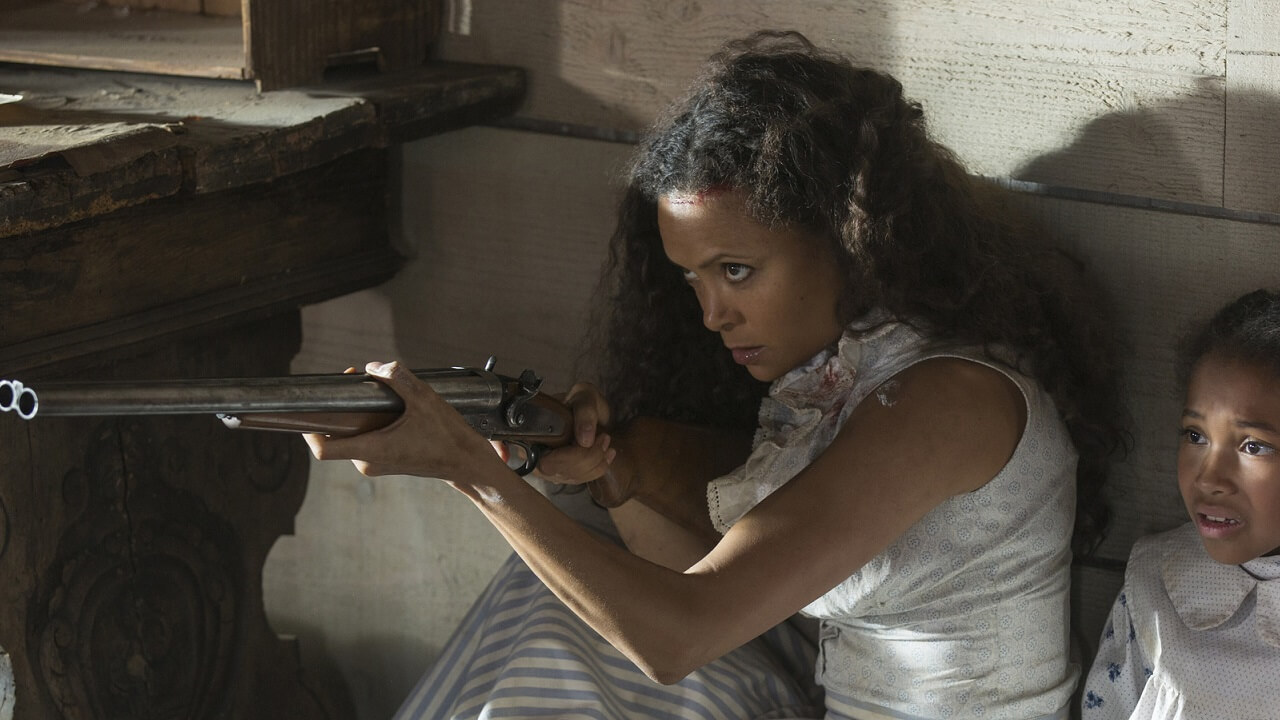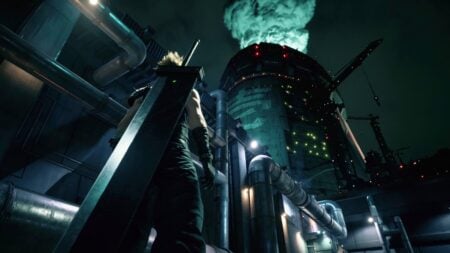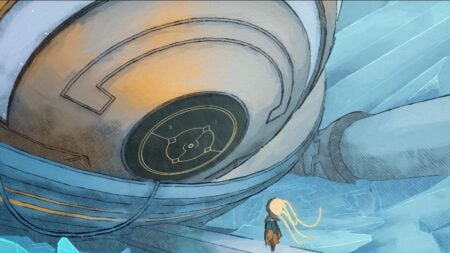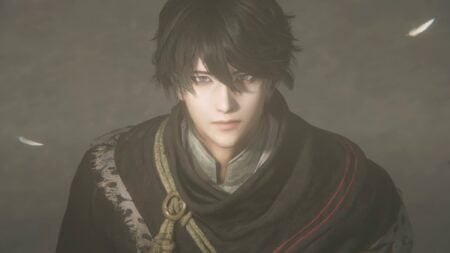Title: Westworld: “Chestnut” Review
Network: HBO
Air Date: October 9, 2016
Genre: Sci-Fi
The second episode of Westworld did a great job of capitalizing on the strengths of the excellent premiere. “Chestnut” expanded on some of the mysteries, added a few more twists and characters, and kept a tighter focus on a smaller number of characters to drive the action. The highs of this episode did not quite reach the best moments of last week, but it remained an excellent hour of TV and helped solidify Westworld‘s spot as a must watch for HBO subscribers.
This week focused on a few main characters, but the most prominent was a newcomer to the show named William (Jimmi Simpson). William is a first time visitor to the park, and he is accompanied by his obnoxious work acquaintance. He is set up to be the audience surrogate: amazed, horrified, and confused all at once by the world around him. He is repeatedly told that the park brings out the true nature of people, but he is rarely allowed to act or make his own decisions (at least until the end of the episode, when he picks up the can Dolores drops). It will be fascinating to watch William’s journey through the park, and whether he stays good or is seduced by the power that, supposedly, seduces everyone. At least he chose the white hat, so he is starting on the right path.
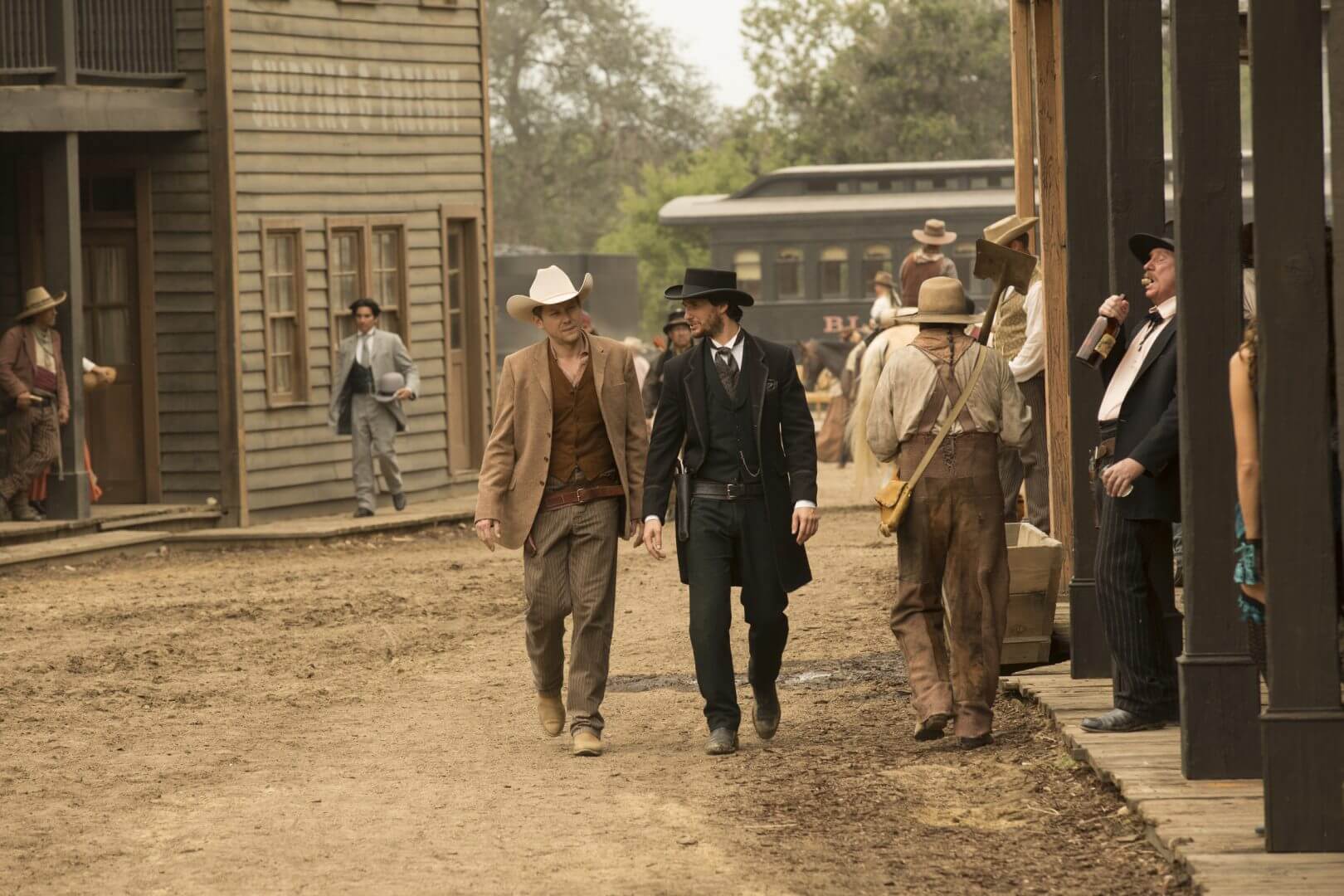
The Man in Black (Ed Harris) continued to dominate the creepy screen time this week, rescuing a man before his hanging in order to pull more clues from him. The shootout in Lawrence’s hometown was some great pure villainy from Harris, using his omnipotence of the world to create a combination of power and boredom. We are no real closer to knowing exactly what the Man in Black’s ultimate goal is, but he is clearly onto something with his search for the maze.
Dolores (Evan Rachel Wood) had a few key scenes this week, as she is meeting with Bernard (Jeffrey Wright) in the real world for unknown reasons. She is remembering much more than she should, and Bernard is clearly up to something with her. Whether it is an experiment or some deeper, nefarious purpose is still up in the air, but something tells me that gun Dolores found is not configured in the same way as the other guns the hosts carry through the world, and some unlucky guest is going to be in for a rude awakening if they try the wrong thing with Dolores.
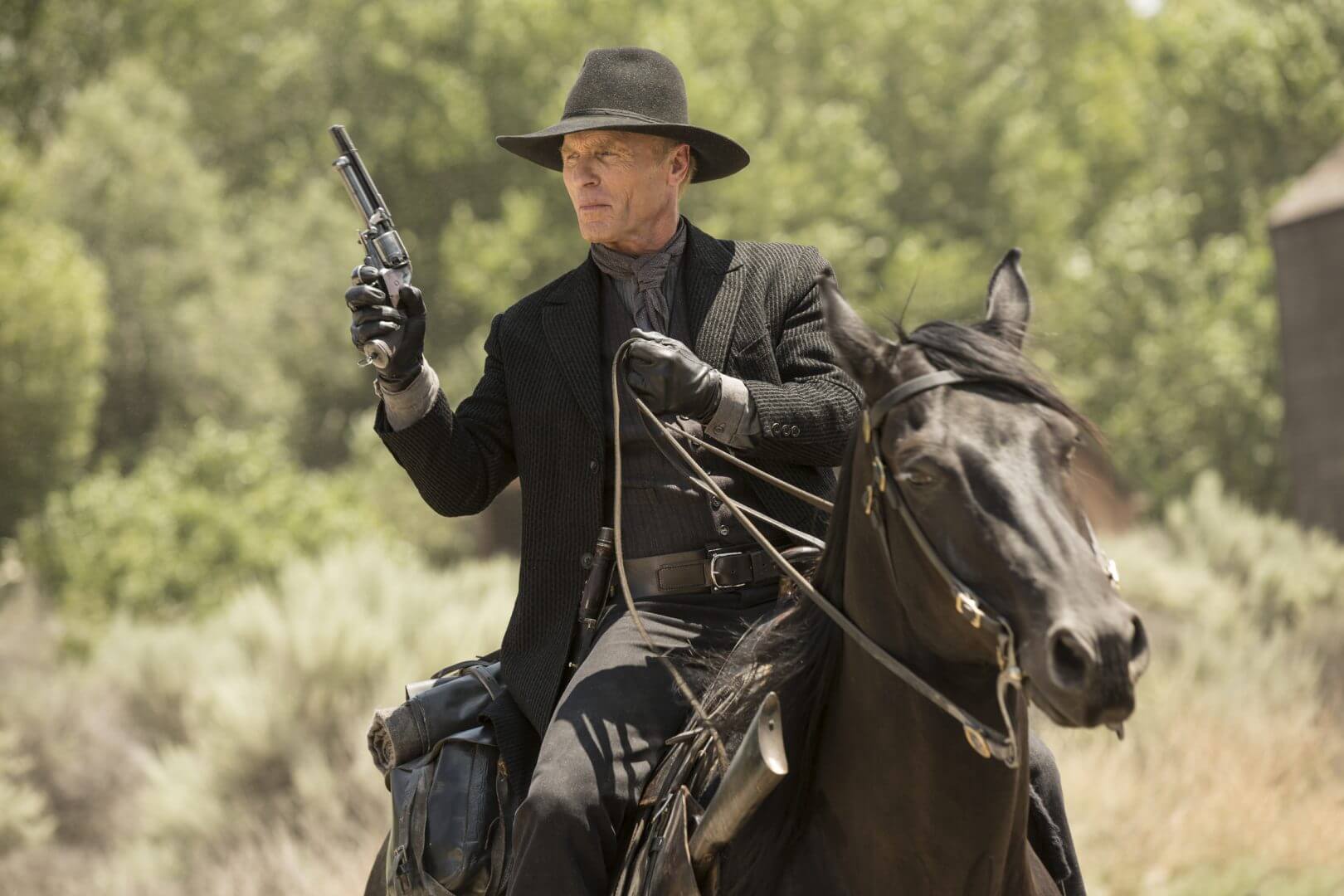
Most of the action this week took place inside the park, and Maeve (Thandie Newton) had the largest journey of the week. After hearing the Shakespeare quote from Dolores, which seems to be either a secret trigger hidden in the hosts’ code or some sort of virus, Maeve started to break down. Her personality was altered, and she finally found herself waking up from the world of the park into the headquarters of the real world. Before eventually being decommissioned, Maeve saw some horrible sights of the way the hosts were treated. She also has shown some strange memories, interacting with a savage Native American attack and encountering the Man in Black. We know the hosts are going to fight back eventually, but will it be from inside the park or some sort of rebellion within the headquarters itself?
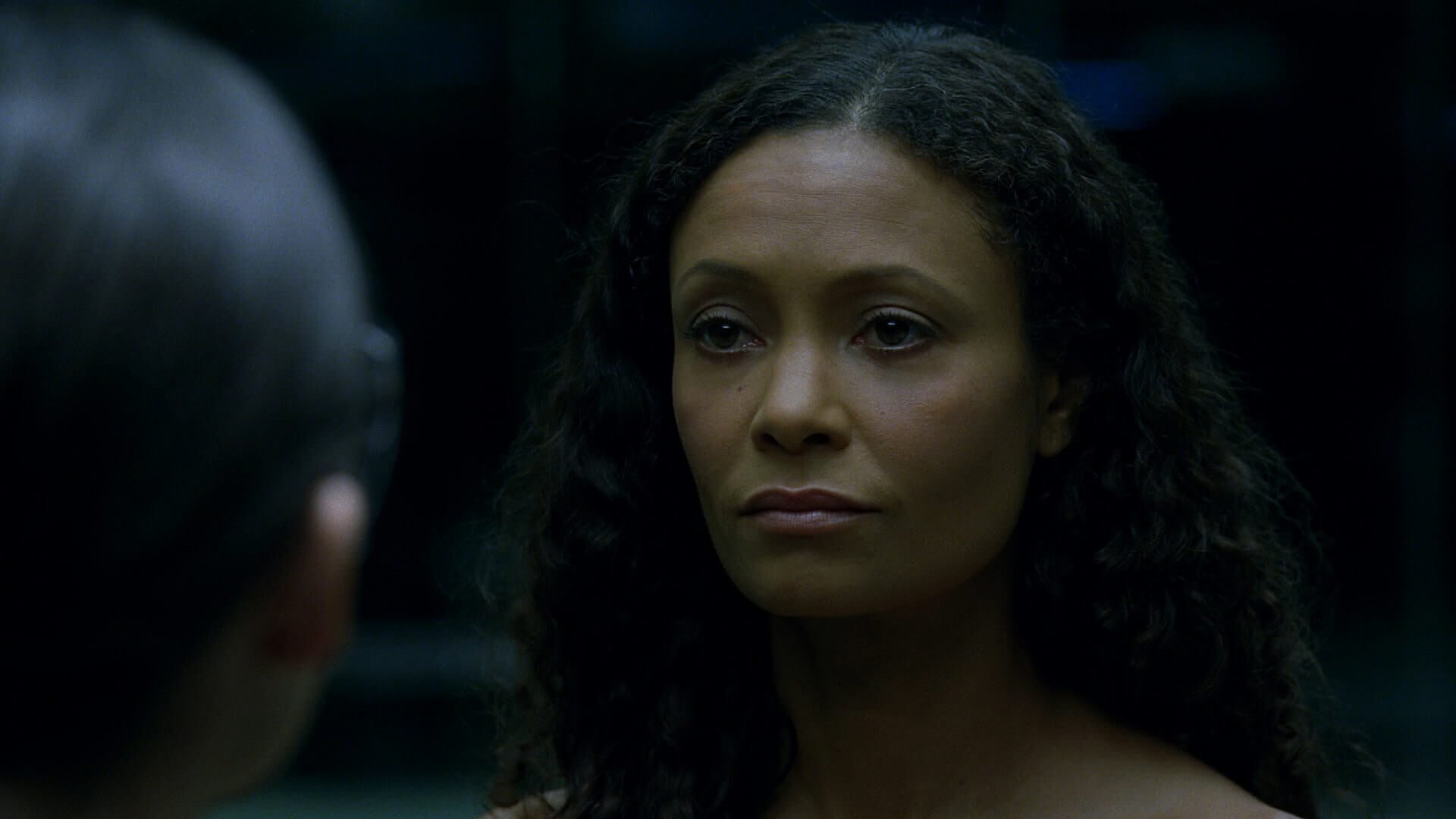
The cinematography of Westworld had been beautiful thus far, and this episode was particularly striking in how the show uses color. Last week, it was the white of the milk (and the substance the hosts are created from) contrasted with the deep red blood. This week, it was the difference between the hosts and the guests themselves. When William and his friend arrive to the headquarters, the hosts and everything around them are pure white. All the guests are all dressed in dark colors. The symbolism could not be more obvious than when a guest is asked to cap off their outfit with either a white or black hat. Multiple characters have mentioned that the park brings out your true self, and many visitors seem like they went “good” on their first visit and got worse and worse the more they returned. Westworld is clearly playing with the idea that all humans are inherently evil if there is no consequence for their actions.
One of the other aspects of Westworld that is so appealing are the subtle references to pop culture, art, and literature. At the end of the episode, Robert Ford (Anthony Hopkins) mentions how it is not the titillating details that bring people back, but the subtle things. He tells his assembled staff why people keep returning: “They come back because they discover something they imagine someone has never noticed before.” In a way, it is those subtle details that elevate a show like Westworld. I know I geeked out in the pilot episode when the orchestral version of “Paint it Black” began pounding away as Hector robbed the saloon, and the reference to the W.B. Yeats poem “The Second Coming” this week had a similar effect, as we know things fall apart and anarchy is loosed upon the world as things venture away from the safe center. Those subtle details hidden throughout the show keep us coming back to see what other things we can notice.
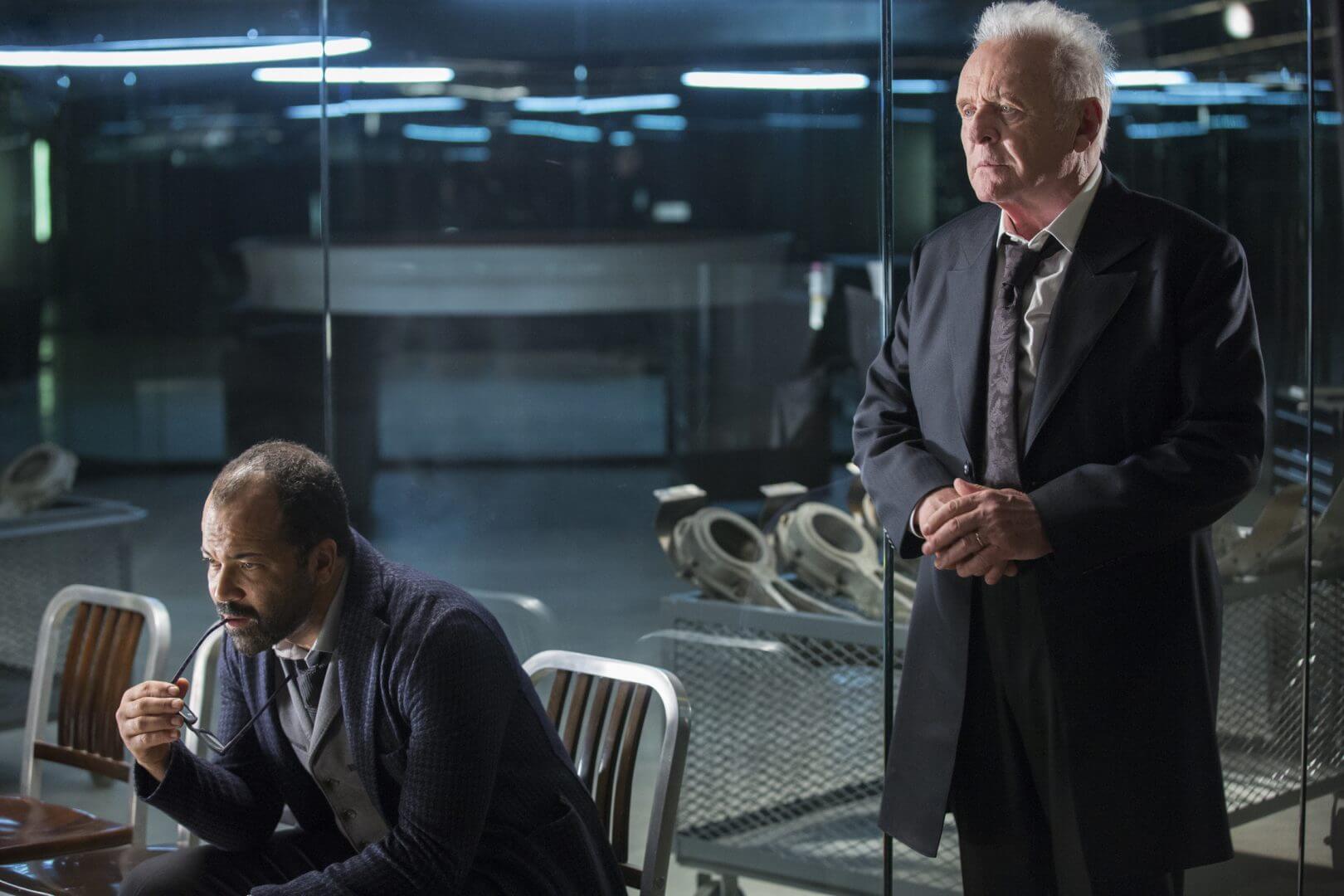
“Chestnut” was another great episode of Westworld. It raised many more questions: what is Ford’s secret event he has planned? What is Bernard doing with Dolores? And what is the Man in Black’s goal, or is he just playing the game to play it? Hopefully, the show is able to keep its threads coherent and provides a steady stream of answers in addition to its new mysteries.
[review]

